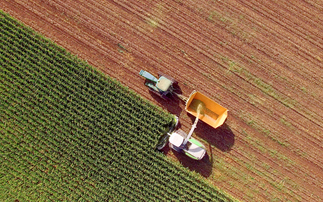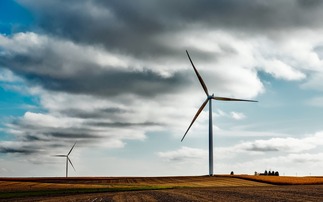Countries must deliver a climate change action plan that doesn't just look good on paper, says Davenport
BusinessGreen is asking key green business leaders for their views on the importance of the climate change talks due to take place in the French capital at the end of this year.
This week we spoke to Juliet Davenport, founder and chief executive of Good Energy.
What do you hope to see achieved in Paris?
Leaders need to come up with a cohesive approach to deal with the threat of climate change - it's never been more urgent. It's simple maths: we can't emit 565 more gigatons of carbon dioxide and stay below 2C of warming. The problem is that fossil fuel reserves equal 2,795 gigatons. So what are we going to do about it? Things have to change.
This needs to translate into action plans that don't just look good on paper but that are also deliverable by the individual nations. They also have to make economic sense and comprise a deal that recognises that this isn't solely about governments and policy setting. It's about engaging all levels of society - politicians, individuals, businesses and academics - so that everyone can begin to see more clearly how they can play a part in making this happen.
What do you think will be agreed?
I think we'll be seeing far greater commitment to renewables and low carbon action by individual nations, even if we don't see a unilateral agreement.
How would a Paris deal impact Good Energy?
If a deal is agreed it means that the fossil fuel companies will have to commit to writing-off carbon assets and switch to low carbon tech. As a blueprint, Good Energy supports a vision of the future and a least cost approach.
Do you think green businesses are making themselves heard?
Green business is a real success in the UK. With 22 per cent of our electricity coming from renewable sources in the first quarter of this year, and solar power alone providing a record-breaking 16 per cent of the UK's total electricity demand during one afternoon in July. We should celebrate this success more and create a force to be reckoned with.
In 240 characters, what would your message be to the lead negotiators?
Do the maths. Two degrees means we must face up to leaving the majority of carbon in the ground and invest in low carbon today.
Are you going to the Paris summit and how are you getting there?
The negotiations in Paris will be tough. In practical terms, I don't think Good Energy can help "on the ground". But we'll definitely be doing our best to translate all the politics for our customers and a wider audience, and demonstrating that there's already plenty we can all do to tackle climate change - regardless of what happens in Paris.
This article is part of BusinessGreen's Road to Paris hub, hosted in association with PwC









